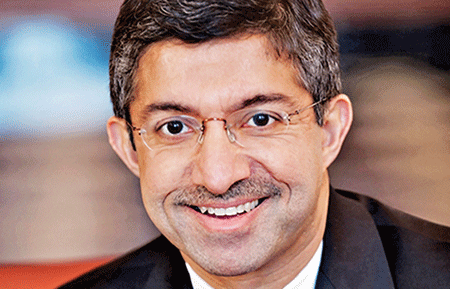TIS 2015: Small Ops Should Think Customer

BOSTON — A Harvard Business School professor suggested that cable operators may be thinking about new over-the-top competitors in the wrong way, and that they should focus on the customer, not the product.
Bharat N. Anand, a professor of business administration, spoke to a crowd of several hundred small and midsized cable operators at The Independent Show in Boston, on “Lessons from the Digital Transformation of Media.”
As cable operators look for ways to stem video subscriber losses, amid new competitors and consumer preferences, Anand suggested they dissect why customers were sampling OTT packages. And the answers may not be so obvious.
In business, he said, it’s deceptively hard to figure out whom — and with what — you are competing against. One of the biggest “competitors” for Black & Decker power tools, he said, were, of all things, neckties. Why? Because both were the go-to gift on Father’s Day, men’s birthdays and Christmas.
“There are industry forces, but strategy is ultimately a decision” that has huge implications, he said.
Newspapers, he said, suffered in the digital age not because there was a news problem so much as it was a classified advertising problem. Print became obsolete when searchable, free ads appeared.
“We better be sure what the fundamental reason is why people are leaving,” he said.
Multichannel Newsletter
The smarter way to stay on top of the multichannel video marketplace. Sign up below.
The upside is huge when consumers change tastes or technologies, and the companies that fail to act swiftly to respond are punished profoundly.
“If the problem turns up in your financials, it’s probably too late,” he said.
The music industry got hammered not so much by piracy, Anand said, as the format change to digital, a similar cyclical change that also came with LPs, and later, cassettes. Artists have adapted. As the price of CDs dropped, artists focused on live acts.
Concerts, once viewed as elaborate promotions for CD sales, are now the cash cow, and CDs and digital music are a complementary way to promote concert tickets for artists, he said.
The key to successful strategies, he said, are “complementary” products offered to user networks. Complementary products include the National Football League and Fantasy Football, greeting cards and flowers, or tires and restaurant guides. In the war for readers between the Sony e-reader and the Amazon Kindle, the Kindle had one key feature — it was wireless. It was less about the reading experience than complementary experience of buying the book, he said.
He said that cable operators are too “ focused on products and not customers.” And he hinted they would be better served looking at complementary products and services, such as installation, recommendation and search.
“The history of media tells us that every time a we think something’s a threat, it turns out to be a be complement, starting with radio and music,” he said.
